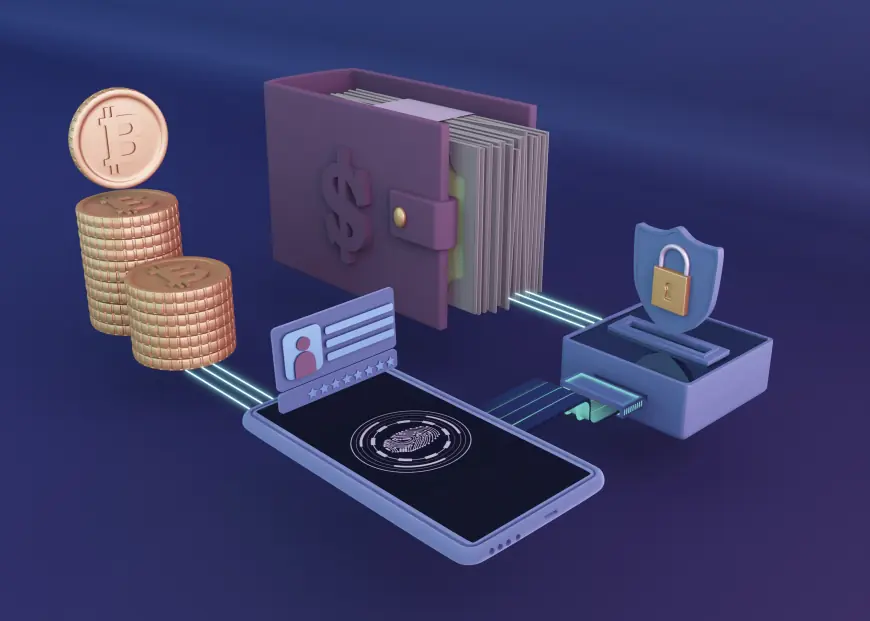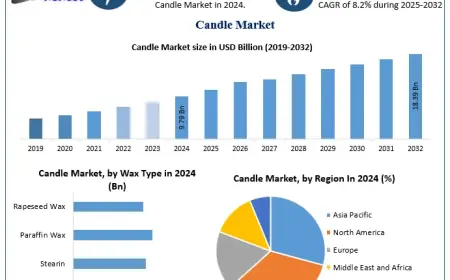How Financial Institutions are Adopting Asset Tokenization to Stay Competitive
Asset tokenization is the process of converting tangible and intangible assets into digital tokens stored on a blockchain. These tokens represent ownership, enabling fractional investment and seamless transfers on decentralized networks.

The financial industry is undergoing a massive transformation, thanks to blockchain technology and asset tokenization platform development USA.. Traditional banking and investment systems are rapidly evolving, with financial institutions integrating digital assets to remain competitive. Asset tokenization—the process of converting real-world assets into digital tokens—has become a game-changer, unlocking new levels of efficiency, security, and accessibility.
In this article, we will explore how financial institutions are adopting asset tokenization to enhance liquidity, streamline operations, and attract a new wave of investors. Whether you're a bank, investment firm, or fintech startup, understanding the role of tokenized assets is crucial to staying ahead in the digital economy.
What is Asset Tokenization?
Asset tokenization is the process of converting tangible and intangible assets into digital tokens stored on a blockchain. These tokens represent ownership, enabling fractional investment and seamless transfers on decentralized networks.
Commonly Tokenized Assets:
- Real Estate – Tokenized properties for fractional ownership.
- Stocks & Bonds – Equity and debt instruments on blockchain.
- Commodities – Gold, silver, oil, and agricultural goods.
- Intellectual Property – Royalties, patents, and copyrights.
- Fine Art & Collectibles – High-value artwork and luxury items.
Financial institutions are leveraging tokenization technology to enhance market accessibility, reduce costs, and improve transparency.
Why Financial Institutions Are Embracing Asset Tokenization
1. Enhancing Liquidity & Market Efficiency
Traditional assets such as real estate, private equity, and fine art have long suffered from illiquidity—meaning they are difficult to buy or sell quickly. With tokenization, these assets become fractionally tradeable, increasing liquidity and attracting more investors.
2. Lower Transaction Costs & Faster Settlements
Traditional financial transactions involve intermediaries, leading to high fees and lengthy settlement periods. Blockchain-based tokenization eliminates intermediaries, enabling:
- Instant peer-to-peer transactions
- Lower transaction costs
- Real-time settlements
This makes asset trading more efficient and cost-effective for financial institutions and investors alike.
3. Increased Security & Transparency
Blockchain technology ensures that all transactions are tamper-proof, auditable, and secure. Financial institutions using smart contracts for tokenization benefit from:
- Automated compliance checks
- Immutable transaction records
- Reduced fraud risks
4. Access to a Global Pool of Investors
By converting assets into digital tokens, financial institutions can reach a broader investor base. Tokenized securities are accessible to both institutional and retail investors worldwide, democratizing investment opportunities.
5. Regulatory Compliance & Smart Contracts
Leading financial institutions are working closely with regulators to ensure tokenized assets comply with legal frameworks. Smart contracts automate KYC (Know Your Customer) and AML (Anti-Money Laundering) checks, reducing manual processes.
How Financial Institutions are Implementing Asset Tokenization
1. Banks Entering the Tokenization Space
Major banks are developing blockchain-based platforms for tokenized assets. Some notable examples include:
- JP Morgan’s Onyx Platform – A blockchain-based system for digital asset transfers.
- Goldman Sachs Digital Assets – Offering tokenized securities for institutional clients.
- HSBC’s Digital Vault – A blockchain-powered platform for digitized securities.
2. Investment Firms Launching Tokenized Funds
Asset management firms are launching tokenized mutual funds and ETFs (Exchange-Traded Funds) to attract investors looking for blockchain-based investments.
3. Fintech Startups Driving Tokenization Innovation
Fintech companies are at the forefront of developing asset tokenization platforms that allow businesses and individuals to tokenize and trade assets efficiently.
4. Central Banks Exploring Digital Currencies (CBDCs)
Central banks worldwide are testing Central Bank Digital Currencies (CBDCs) as part of their adoption of blockchain technology and tokenized assets.
Key Challenges Financial Institutions Face in Tokenization
1. Regulatory Uncertainty
Despite growing adoption, regulatory frameworks around tokenized assets vary across jurisdictions. Financial institutions must navigate:
- Securities laws and compliance requirements
- AML and KYC regulations
- Cross-border transaction challenges
2. Cybersecurity & Risk Management
With increased blockchain adoption, financial institutions must prioritize cybersecurity measures to prevent hacks, fraud, and data breaches.
3. Market Adoption & Investor Education
While asset tokenization is growing, traditional investors still lack awareness and confidence in blockchain-based assets. Education and trust-building are essential for mass adoption.
The Future of Asset Tokenization in Financial Institutions
As more financial institutions embrace tokenization, the industry will witness:
- Greater institutional adoption of blockchain technology
- Stronger regulatory frameworks for digital assets
- More tokenized investment opportunities for retail investors
- Increased integration between traditional finance and DeFi (Decentralized Finance)
Conclusion
Financial institutions adopting asset tokenization are positioning themselves as leaders in the future of digital finance. By leveraging blockchain technology, smart contracts, and regulatory compliance, banks, investment firms, and fintech companies can enhance efficiency, security, and accessibility in asset trading.
As the global financial landscape continues to evolve, tokenized assets will play a crucial role in democratizing investment opportunities, improving liquidity, and reducing transaction costs.
Are you ready to explore asset tokenization solutions for your financial institution? Now is the time to embrace the blockchain revolution and stay ahead in the competitive financial market!
What's Your Reaction?
 Like
0
Like
0
 Dislike
0
Dislike
0
 Love
0
Love
0
 Funny
0
Funny
0
 Angry
0
Angry
0
 Sad
0
Sad
0
 Wow
0
Wow
0











































